Boom Cylinder For Lishide Small Excavator SC130.8
Üheks hüdrosilindrite tootjaks, tarnijaks ja mehaaniliste toodete eksportijaks pakume hüdrosilindreid ja paljusid teisi tooteid.
Palun võtke meiega ühendust üksikasjade saamiseks.
Post:sales@hydraulic-cylinders.net
Tootja tarnija eksportija hüdrosilindrid.
Boom Cylinder For Lishide Small Excavator SC130.8
Introduction to Boom Cylinders
The Boom Cylinder is a crucial component in hydraulic systems, particularly in heavy machinery such as excavators. Designed specifically to control the movement of the bucket, this hydraulic cylinder plays a vital role in various operations, enabling the bucket to lift, lower, and tilt. This functionality is essential for material handling tasks, making it indispensable in construction and excavation projects.
A bucket cylinder is a type of hydraulic actuator that converts hydraulic pressure into mechanical force. When hydraulic fluid is pumped into the cylinder, it creates pressure that extends or retracts the piston, allowing for precise and powerful movements. This mechanism ensures that heavy loads can be managed efficiently, enhancing productivity and safety on the job site.
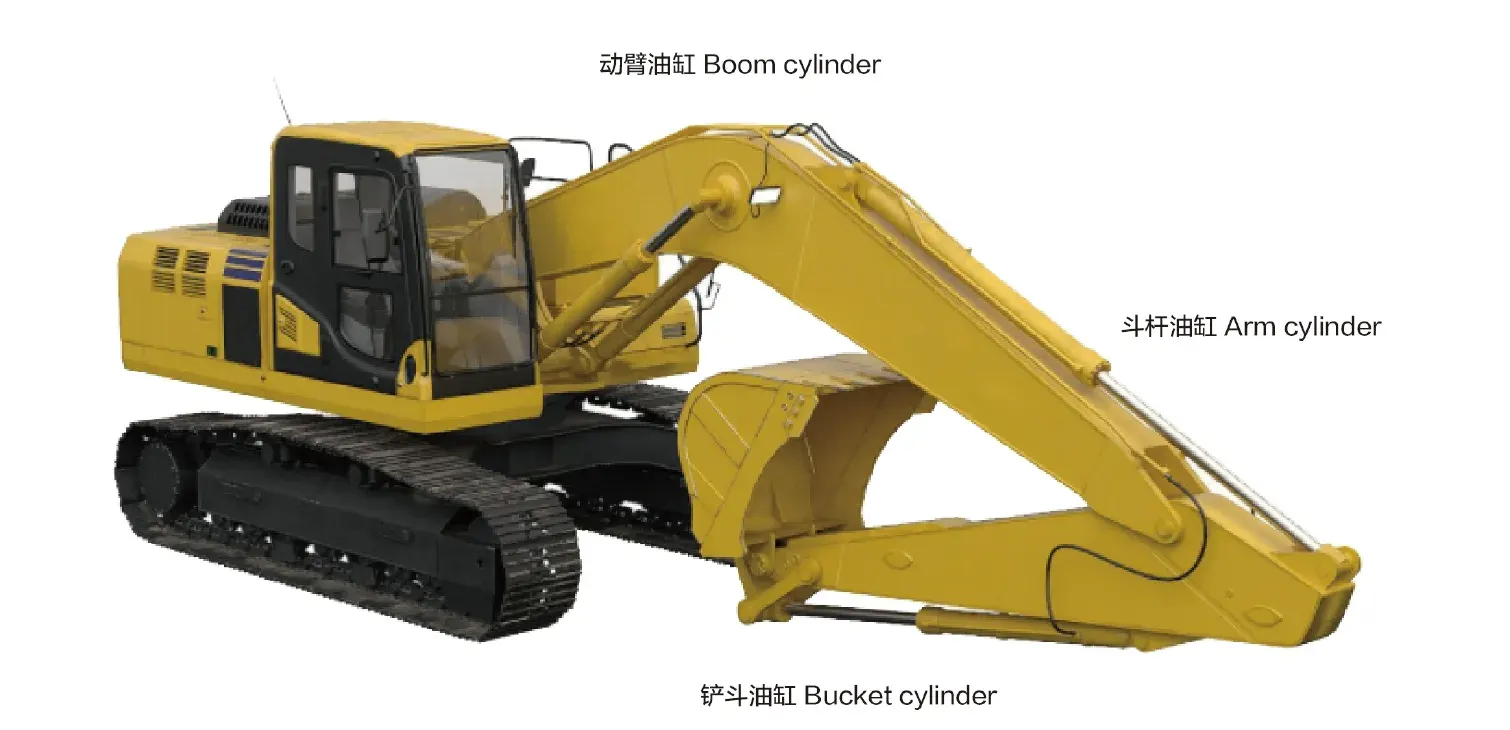
Features of the Boom Cylinder
-
High Strength and Durability
Typically constructed from high-strength steel or aluminum, the boom cylinder is engineered to withstand high pressure and heavy loads. Its design takes into account wear resistance and corrosion resistance, thereby extending its lifespan even in harsh working environments.
-
Efficient Hydraulic Operation
The cylinder utilizes hydraulic fluid pressure for smooth extension and retraction, providing quick response to control commands. This capability allows it to deliver substantial push and pull force, making it suitable for handling heavy and complex tasks.
-
Variety of Types
Available in single-acting (operates in one direction) or double-acting (operates in both directions) configurations, the boom cylinder can be selected based on specific operational needs. Some models are telescopic, allowing for greater extension without increasing external dimensions, making them ideal for space-constrained applications.
-
Compatibility and Customization
Our products can perfectly substitute existing hydraulic cylinders in various models, ensuring seamless integration into your machinery.
-
Comprehensive Testing
Each cylinder undergoes rigorous testing to ensure it meets performance standards and is reliable under demanding conditions.
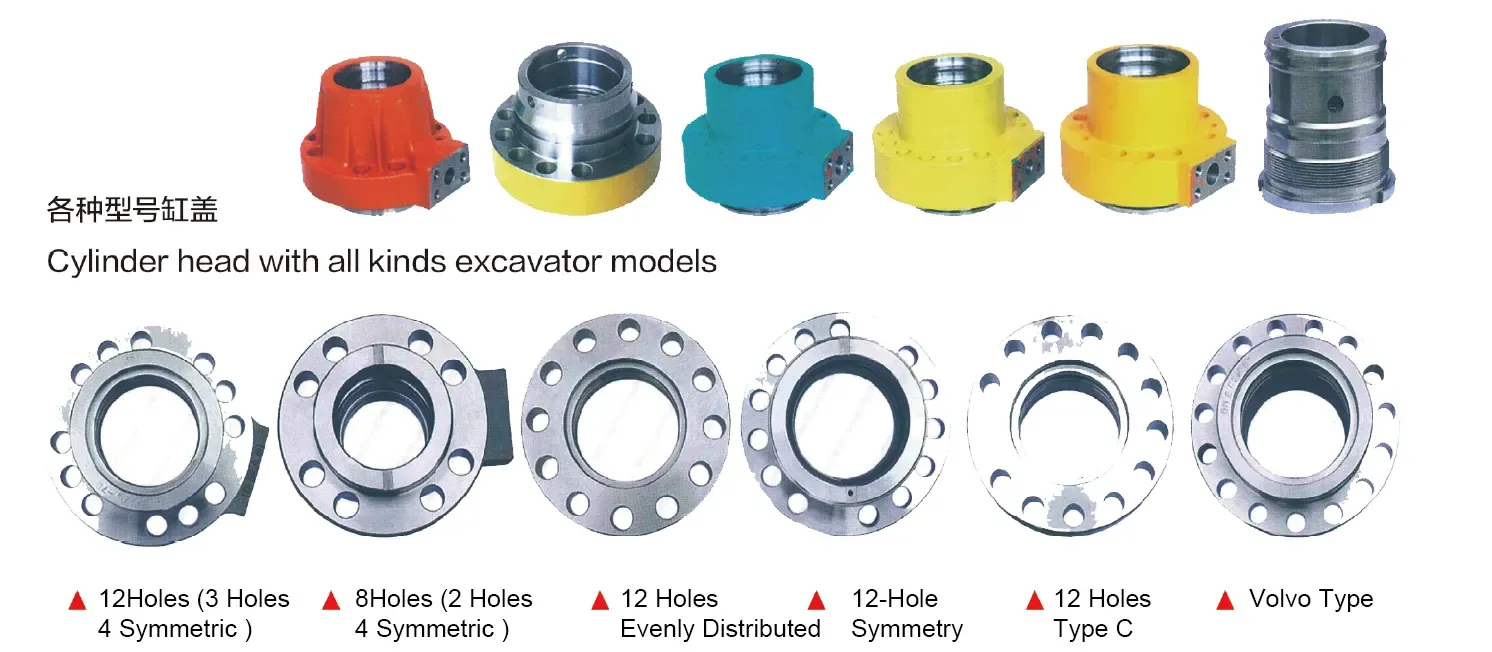
Application Scenarios of the Boom Cylinder
Construction Equipment
In excavators, the boom cylinder is essential for digging, loading, and moving soil or debris. Its ability to control the bucket’s depth and angle allows operators to perform intricate excavation tasks with precision. Additionally, in backhoe loaders, the boom cylinder aids in both excavation and lifting operations, making it a multifunctional component in construction machinery.
Agricultural Machinery
In front-end loaders, the boom cylinder is responsible for scooping, lifting, and transporting soil, hay, and other materials efficiently. This versatility is crucial in agricultural settings, where productivity depends on quick and reliable machinery operations, especially during peak seasons.
Excavators
The boom cylinder allows excavators to penetrate the ground effectively, facilitating digging operations. Its hydraulic power enables the bucket to exert the necessary force to break through soil layers, thus improving efficiency in excavation processes.
Loaders
In front loaders, the boom cylinder helps raise and dump loads efficiently. The hydraulic system guarantees that heavy materials can be lifted and tipped with minimal effort, enhancing the operational capabilities of the loader.
Design Considerations and Selection Criteria
Load Capacity
The load capacity of a boom cylinder is a critical factor in its design. It must be capable of handling the maximum loads expected in its operational environment. Engineers typically calculate this based on the machinery’s intended use and ensure that the cylinder can withstand these forces without failure.
Sealing Mechanisms
Effective sealing is essential to prevent hydraulic fluid leaks and maintain system pressure. High-quality seals, constructed from durable materials like polyurethane and nitrile rubber, are employed to enhance the longevity and reliability of the cylinder. Properly designed sealing systems ensure optimal operation under various environmental conditions.
Durability and Corrosion Resistance
Given the harsh conditions under which hydraulic cylinders operate, durability is a paramount design consideration. The materials used must resist wear and corrosion, ensuring that the cylinder remains functional over time. Protective coatings and finishes can be applied to enhance corrosion resistance and extend service life.
Safety Features
Safety is a critical aspect in hydraulic cylinder design. Safety valves and overload protection systems are often integrated to prevent accidents caused by unexpected pressure spikes or mechanical failures. These features protect both the equipment and the operators during operation.
Maintenance Accessibility
Designing for ease of maintenance is vital for ensuring the longevity of hydraulic cylinders. Components should be accessible for regular inspections, lubrication, and seal replacements. This design consideration minimizes downtime and contributes to the overall efficiency of machinery operations.
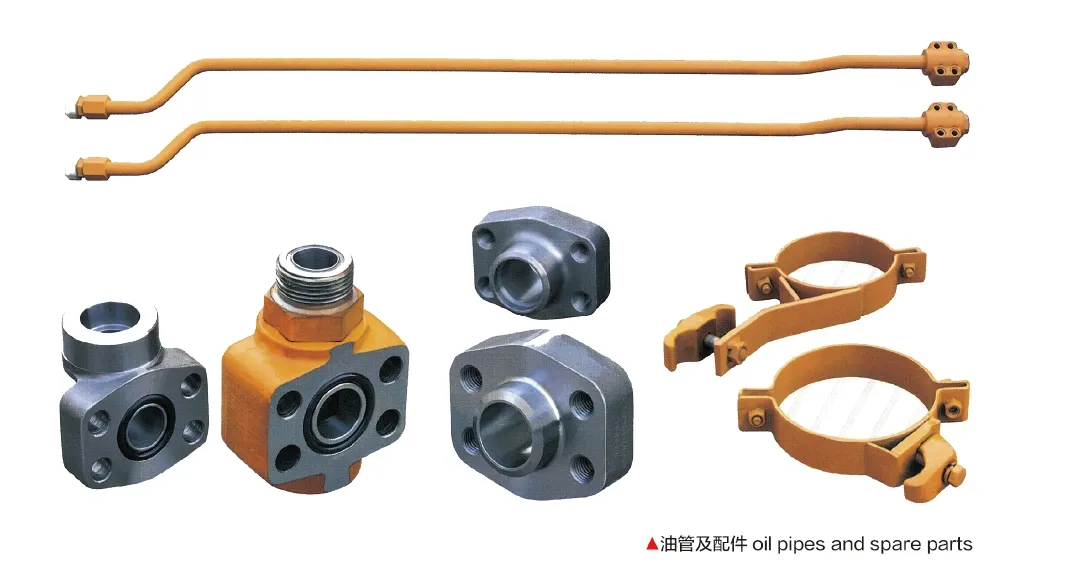
Sealing and Lubrication of the Boom Cylinder
Sealing and lubrication are critical for the effective operation of the boom cylinder. Various sealing components such as piston seals and rod seals are implemented to maintain hydraulic pressure and prevent fluid leakage. The selection of sealing materials like polyurethane and nitrile rubber enhances wear resistance and longevity. The cylinder body and threaded end surfaces undergo fine machining to improve durability and reduce wear.
Regular lubrication with hydraulic oil is essential to minimize friction and ensure smooth operation. Operators should adhere to scheduled maintenance routines, including timely oil replenishment, to guarantee optimal performance of the hydraulic system.
Regular Inspection and Preventive Maintenance Measures
-
Scheduled Inspections
Conducting regular inspections is vital for identifying potential issues before they escalate. This includes checking for leaks, assessing the condition of seals, and ensuring the integrity of structural components.
-
Appropriate Lubrication
Ensuring that the boom cylinder is adequately lubricated is crucial for preventing wear and maintaining operational efficiency. Use the recommended hydraulic oil and follow manufacturer’s guidelines for lubrication intervals.
-
Seal Replacement and Calibration Checks
Regularly replacing seals and performing calibration checks can prevent hydraulic failures. It’s essential to follow a strict schedule to replace worn seals and maintain the cylinder’s operational accuracy.
Installation Guide for the Boom Cylinder
Proper installation of the boom cylinder is critical for its performance and longevity. Begin by ensuring that all components are clean and free from debris. Align the cylinder accurately with the mounting brackets, utilizing appropriate mounting supports to secure it in place. This helps prevent misalignment, which could lead to premature wear or failure.
Use the manufacturer’s specifications for torque settings when fastening bolts to ensure a secure fit. After installation, conduct a thorough inspection to confirm that all connections are tight, and check for any leaks. Once confirmed, fill the hydraulic system with the appropriate oil and perform a pressure test to verify functionality before commencing operations.
Essential Maintenance Tasks
-
Regular Inspections
Routine inspections allow for early detection of wear and potential issues. Regularly check the cylinder for leaks, assess the condition of seals, and ensure mechanical integrity.
-
Proper Lubrication
Consistent lubrication is key to reducing friction within the cylinder. Use high-quality hydraulic oil and follow the recommended lubrication schedule to enhance its operational lifespan.
-
Seal Replacement and Calibration
Replacing seals as part of regular maintenance is crucial for ensuring the cylinder operates efficiently. Conduct calibration checks periodically to maintain optimal performance.
Safety Considerations and Environmental Factors
Safety measures are paramount when operating hydraulic systems. Ensure that operators are trained to recognize potential hazards associated with hydraulic operations. Implementing safety protocols, such as emergency shut-off systems and proper training, is essential for avoiding accidents and ensuring a safe working environment.
Troubleshooting Common Issues
-
Hydraulic Leaks
Leaks can result from worn seals or damaged components. Regular inspections should be conducted to identify and address leaks promptly.
-
Inconsistent Movement
If the boom cylinder operates erratically, check for issues with the hydraulic fluid level or possible blockages in the hydraulic lines.
-
Excessive Noise
Unusual noises during operation may indicate mechanical issues or insufficient lubrication. Investigate the source of the noise and address it immediately.
Troubleshooting Tips and Solutions
To effectively diagnose and solve issues with the boom cylinder, operators should maintain a log of symptoms and performance changes. Regular maintenance can help prevent issues before they arise. When a problem is identified, consulting the manufacturer’s guidelines can provide solutions tailored to specific issues. Additionally, maintaining a clean working environment can greatly reduce the likelihood of contamination affecting the hydraulic system.
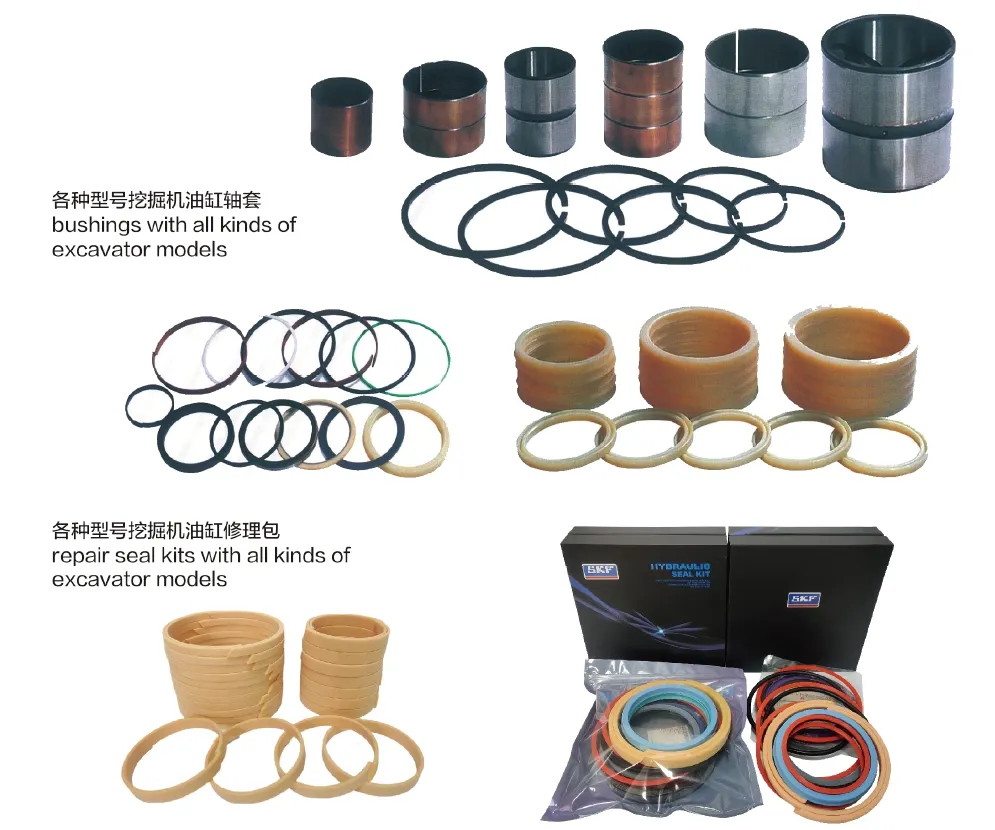
About Our Company
We are a leading manufacturer and wholesaler of hydraulic cylinders, specializing in the production of replacement hydraulic cylinders. Our comprehensive product range positions us as one of the front-runners in both domestic and international markets. We are committed to excellence, relying on a refined manufacturing strategy that incorporates advanced production management. Our team employs skilled technical personnel, state-of-the-art digital manufacturing equipment, and a professional testing system to continuously enhance our production capabilities.
Through high efficiency, precision, and quality, we aim to meet the diverse needs of our customers. Our commitment to professional standards, international certifications, and custom services ensures that we deliver products that meet or exceed industry expectations. Our robust manufacturing equipment and dedicated after-sales service further reinforce our position in the market.
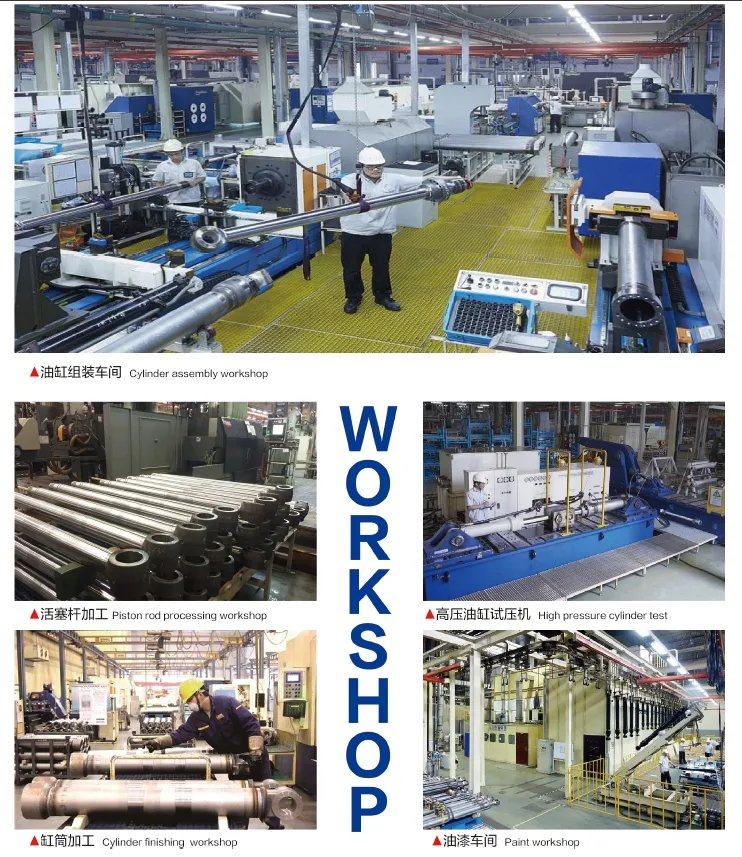
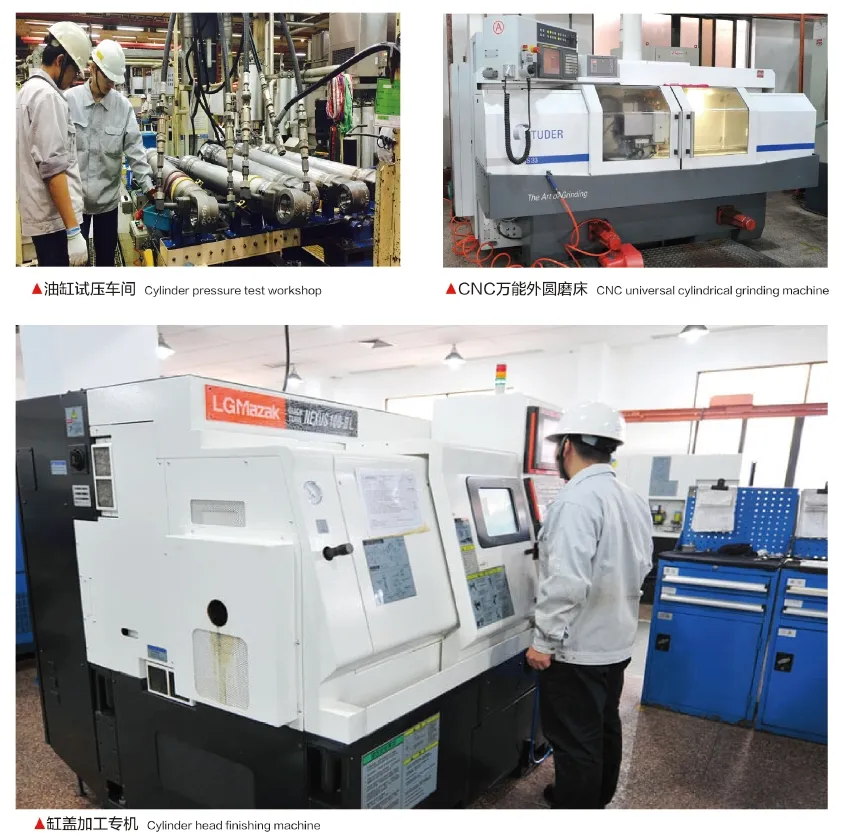
Author: lyl
Tehke ekskursioon meie VR-tehases:
Tehke ekskursioon meie VR-tehases koos järgmisega
Hüdrosilindri kasutamine:


